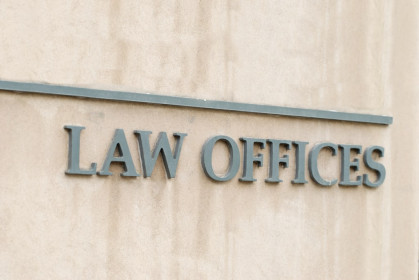
How To Buy An Apartment In New York City
Working with Real Estate Agents and Attorneys

Do you really need a real estate agent to buy a home in NYC?
The vast majority of NYC homes are represented by a listing agent, while FSBO—or For Sale By Owner—listings are relatively rare in NYC. A broker’s 5-6% commission is paid by the seller and then typically split with the buyer’s agent if there is one.
Buyers do not have to pick one real estate broker with whom to work exclusively, nor must they work with one at all. Some choose to fly solo and deal directly with the seller's broker because they believe it gives them an edge in a competitive bidding situation. They theorize that because the seller's broker won't have to split a 5% or 6% commission with a buyer’s broker, the seller's broker may subtly or not so subtly encourage the seller to accept their offer. In a less competitive market, some buyers choose to work directly with the seller's broker in order to ask the seller's agent to kick in a percentage point of the commission toward the purchase price.
Don't be afraid of co-ops in NYC
"Co-ops are generally 10% less expensive than condos. Their rules are designed to protect the value of your apartment and ensure your neighbors are financially sound," says Matthew Steer of SteerKelly Team at Keller Williams. "As your broker, it's our job to make sure you qualify for the building you're interested in. We have a 99.9% success rate of getting buyers board-approved." Get in touch with us >>
Whether most buyers successfully wrangle that extra percentage point is unclear. Moreover, as this New York Times article explains, working directly with the seller's agent--whose loyalties are divided between buyer and seller--is a bad idea in pretty much every other way. Among other things, you won’t have a real advocate during contract negotiations, and you may not hear about problems with the apartment or the building or resale potential.
Consider finding a (good) buyer's broker if:
- There are special circumstances about your qualifications, circumstances or desired apartment that will make your search particularly challenging. And as in any business transaction, creative deal structuring can save the day. For example, while many co-ops will not approve a pied a terre purchase by parents who intend for their adult child to live there, some will approve a co-purchase situation in which all parties (parent and child) are on the proprietary lease and stock certificate. Self-employed and international buyers can also face hurdles that require strategic assistance.
- You're busy. You don’t have the time or inclination to manage your search, including researching available properties and comparables or setting up appointments with agents.
- You are a first-time buyer. Buying in New York City is complicated and expensive and unlike almost anywhere else in the world. A knowledgeable advocate can be invaluable.
- You are new to New York City. See above and multiply by a hundred.
- You are buying a new condo: Unlike the boilerplate contracts typically used for resales, the sponsor/developer drafts their own purchase agreement. That often leaves more issues to be protected against and negotiated that are largely unfamiliar to the typical buyer--necessitating a good broker and a good real estate lawyer. Your broker should be able to provide you with some industry insight into the building before you submit an offer.
- You're tired of being outbid, or you're not finding enough available in your price range or ideal neighborhoods Applying data science to the ultra-competitive world of NYC real estate, at least one brokerage uses technology to intelligently mine publicly available records and make predictive guesses about who may be thinking about selling their place. The Agency (a Brick Underground partner) curates these "off-market" listings for buyers, meaning you can meet and deal with apartment owners before their homes hit the market.
- You are unfamiliar with the neighborhood(s) in which you are looking.
- You are buying in a difficult co-op: A good buyer's agent will be able to determine the likelihood that you will pass the board before you ever make an offer, which will save everyone substantial time, money and heartache. They will also be able to help you craft an application package that caters to the whims of the board so that your chances of being approved are higher.
- You are buying for investment: A good broker with a solid understanding of investment properties should be able to help you develop your pro forma to model anticipated cash flows, cap rates, internal rates of return, and expected net profits. They will also be able to put you in touch with lenders and property managers that specialize in investment property and help you determine the market value of rents. They may also be able to help with leasing after you buy. (For more detailed info, see "Want to buy an investment apartment to rent out? Here's what you need to know")
Important note about broker fees: Many buyers visit open houses on their own either while working with a broker (writing the broker’s name on the sign in sheet) or while getting their feet wet before choosing a broker. If you sign in to an open house without a broker, and want to make an offer on the apartment, you usually have the right to bring in your own broker at any time up until an offer is submitted, no matter what the seller’s broker (who now has to split the commission) tells you. There are two important exceptions: If the seller’s broker is not a member of the Real Estate Board of New York (REBNY), which is more common in boroughs outside of Manhattan, they are not obligated to split their fee with another agent (a.k.a. "co-broke"). The same is true in some new developments where the developer's agents are in-house or not REBNY members. In these two circumstances, although you have a legal right to choose an agent to represent you, you may have to pay them yourself.
How to pick the best real estate agent
New York City has around 15,000 licensed real estate agents, but the bar to entry is pretty low, so a license alone is no testament to skill, commitment, or experience. Below, a few indications that an agent will be an asset to you in your search for a home here:
- They are intimately familiar with the neighborhood(s) you are looking in
- They have at least a few year’s experience
- They are busy, but not so busy that they hand you off to an assistant
- They work full-time
- You have a good gut instinct about them (no high-pressure tactics)
- They have experience with condos, co-ops, new developments, or townhouses (whichever you are focusing on)
- They seem to understand your taste and sensibilities.
If you're not seeing enough homes for sale in your price range or target neighborhood—and/or you'd like to avoid a bidding war—consider expanding your search to "off-market" listings. NYC real estate brokerage The Agency, a Brick Underground partner, uses technology to mine public records and identify owners who may be ready to sell, meaning you can meet and deal with owners before their homes hit the market. Click here to learn more.
How to find a good real estate lawyer

Once a seller has accepted your offer, you will need a real estate attorney to prepare and negotiate the details of the contract.
But don’t wait until then to figure out which attorney you plan to work with. There will be a lot of quickly moving pieces and heightened emotions--and you don’t want to rush this.
Here are a few pointers for picking a good closing lawyer:
1. Just about the worst thing you can do is hire an attorney who does not specialize in NYC residential real estate
Do not—repeat, do not—try to save money by dragging Uncle Morty away from his trusts & estates practice. The intricacies of closing a NYC real estate deal—from due diligence on a co-op to reading a condo board minutes—are not taught in law school or dealt with in many other real estate markets.
2. On the other extreme, don’t pick a chop-shop closing lawyer who takes a cookie cutter approach to your transaction and/or is too overloaded to be responsive
3. If you don’t already know a good closing attorney, ask for referrals from people you know, but be skeptical about referrals from brokers involved in your transaction
These attorneys may be quite competent, but they may also feel the need to help a transaction go through in order to keep getting referrals. This is especially true with referrals by a broker representing a new development, where the potential for future business can be huge.
4. Fees typically range from $1,500 to $3,000 for the average transaction
Expect to pay up to a few thousand more if, for instance, you want to preserve your privacy by buying an apartment under an LLC created for this purpose.
5. Make sure the fee includes due diligence, and that your attorney (not a paralegal) will be going to the managing agent’s office to read the financials and minutes (and read the offering plan if the building is less than 5 years old)
It’s also best practice for your attorney to administer the managing agent questionnaire (about bed bugs, leaks, noise complaints, reserve funds, major capital projects, etc.) in person or over the phone. (As one closing attorney told us, “They have a duty to the building but generally they don’t want to lie. You can tell if they’re trying to avoid something.”)
















